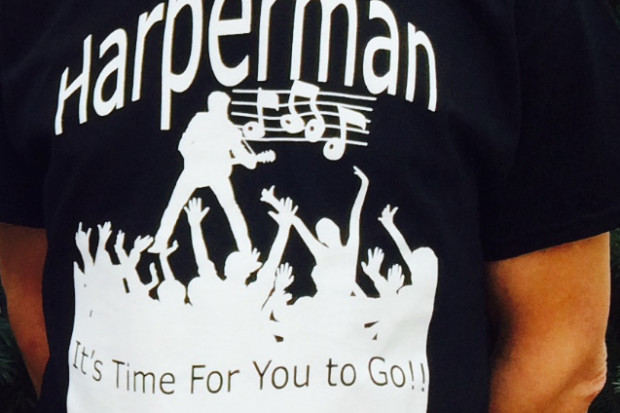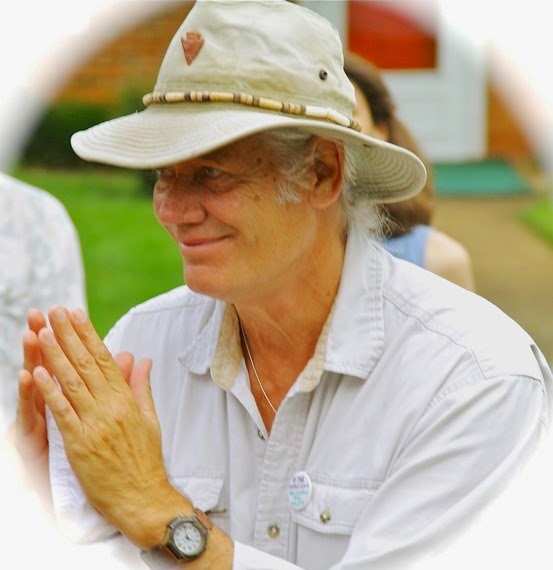Lawrence Klippenstein of Winnipeg, Manitoba, Canada writes:
'I have just received this item about "Amish" in Ukraine who are not really Amish.
'
They live like Amish, but they are not', by Yuliana Romanyshyn,
KyivPost, November 1, 2015.
I read the piece and was reminded of Doukhobors and thought I saw some practices in the group common to Doukhobors.
What do you think? ... [I am] interested in your remarks. [and] thought ... you would be able to give a more definitive word on this group ....
Answers by Koozma J Tarasoff and Andrei Conovaloff (Updated May 4, 2019)
Yes, there are some similarities comparing this Ukrainian faith with Doukhobors, who also have historical roots in Ukraine.
These 'Ukrainian Amish' have no formal label, and describe themselves as:
- believers (veruiushie : верующие)
- plain people (prostakami простаками)
- people who pray to a Living God (molit'sya Zhivomu Bogu : молиться Живому Богу)
Their faith was founded about 1927 by Pentecostal missionaries, probably from America. They were initially known for opposing electrification, and later for avoiding modern conveniences (telephone, gas, autos, etc.). In the 1950s this 'dark' Pentecostal tribe was led by prophet Ivan Derkach (1927-2009), who lived and was buried in Kosmirin, their main village. Believers also reside in 10 nearby villages (map below). Some daily attend Derkach's grave anticipating his resurrection. His grandson is the current religious leader, presbyter.
A most suitable label for their faith is
Derkachi (Деркачи : pronounced Der-ka-CHI), meaning 'followers of Derkach', which we will use here.
 |
The map shows 11 Derkach villages, all but 2 are within 3 miles of Kosmirin.
Click on image to ENLARGE. Google map. |
The article describes 'mysterious ... closed Christian communities who have no name for themselves and live in rural settlements' in
western Ukraine along both sides of the Dniester river. The reporter named 5 of at least 11 villages they inhabit with other faiths, Orthodox and Protestant.
 |
| For being different, Derkachi are called 'Ukrainian Amish' and 'cap people'. |
Outsiders refer to them with 8 various Ukrainian labels related to their dress and behavior, most in ridicule for being conservative, old fashioned and different. All members must cover their heads and avoid 'the world'.
- Amisha'mi (амішами : Amish) — used by local journalists and some neighbors, who compare them to American Amish.
- kashketniki (кашкетники : people who wear kashketcaps, caps wearers) — for the type of flat cap (kashket) worn by males. Ukrainian Wikipedia uses this term : Кашкетники
- flomasteri (фломастери : markers, felt-tip pens, highlighters) — for the bright solid color caps worn by girls
- svitlofori (світлофори : traffic lights) — for the bright solid color caps worn by girls
- khustynniki (хустинники : handkerchiefs) — for women's head scarfs
- staroviri (старовірі : old believers) — old fashion faith
- temni pyatidesyatniki (темні п'ятидесятники : dark Pentecostals) — for rejecting electric lights during Soviet electrification
- poslidovniki Ivana Derkacha (послідовники Івана Деркача : followers of Ivan Derkach) — the founder (in a single word : Derkachi)
Russian journalists avoid the Ukrainian terms by translating popular labels to Russian:
- Amishi (Амиши) — American faith with similar traits
- kartuzniki (картузники) — 'cap wearer', and craftsman
- starovery (Староверы) old believers, old faith (perhaps confusing with staroobryádtsy)
 |
| 'covering the head' is an 'expression of modesty, self-immolation' |
There are now 3 self-assigned descriptions plus 8 other-assigned labels for these people — 11 different labels used in the news. We believe calling them
Derkachi is simplest, historically accurate, not offensive, easily transliterated into most languages, and conforms to scientific naming practices.
Though some neighbors call them 'Amish', the reporter says: 'The religious beliefs are close to Baptists'. She described them as:
- 'founded in the 1950s by ... Ivan Derkach
- 'refuse to be photographed and won’t speak to journalists'
- 'Christians, but they don't go to church'
- 'women pray apart from the men and children'
- 'use the Bible while praying at home'
- 'do not venerate the Virgin Mary'
- 'dress plainly, ... prefer simple cuts but bright colors'
- 'women wear long skirts and cover their hair with a headscarf'
- 'A married woman wears two headscarves' [like a cap]
- 'children attend [mandatory] primary school but never leave the village' for higher education
- have many kids, up to 18-20, which is overcrowding the school
- 'never travel – except [men] when taking on temporary jobs in the cities'
- 'houses ... are simple, with whitewashed walls'
- 'frugal – they don’t have electricity and water supply'
- 'cook on wood-burning stoves, grow vegetables, and keep cattle and poultry'
- only men work for wages, but not far from home
- earnings are divided among all families, and a community fund
- don't vote except locally in the village
- 'against using firearms and will not serve in the ... army'
- 'Some ... imprisoned in Soviet times for their refusal to serve in the army'
Most of these traits are shared by many other protestant-like non-Orthodox pacifist Christian faith tribes around the world with roots in Ukraine —
anabaptists (including
Amish) and
Spiritual Christians from Russia. During initial immigration to North America, journalists called Doukhobors (1898-1900) and non-Doukhobor Spiritual Christians (1904-1905) from Russia : 'Russian Quakers' and 'Russian Mennonites', and today still confuse their labels.
Since
Baptists are common in Ukraine, the reporter used them for lack of knowledge of a better comparison. From the perspective of the Orthodox and Catholics, all Protestants are nearly the same, heretics.
This
KyivPost story lacked much information reported elsewhere:
- Ivan Derkach was a 'prophet' and leader of the 'dark' Pentecostals
- in 1963 the Soviet Union did not have a policy for heretic Pentecostals and Jehovah Witnesses in the Buchach raion (district), Ukraine
- he interpreted the Bible that women should 'give birth annually' though doctors advise spacing childbirth at 4-5 years
- 'Derkach ... foretold the collapse of the Soviet Union', 'that Yanukovych would not become the president of Ukraine', and healed the sick
- Derkach said 'I am the last (prophet), there will be no one after me', promising an imminent end to the world
- his initial following was small, about 12 people in the 1950s
- by 2017 there were about 2,000 Derkachi in all villages (about 200 families, 25 clans)
- in October 2018 there were 1268 Derkachi in Kosmirin, including 642 children 18 and under
- a third of the 1360 residents of Kosmirin village are Derkachi, projected to be half the village in 10 years
- pray to a 'living God'
- 'they believe: God is in the soul, and their path is the only correct one'
- during (secret) Sunday service: sing Psalms, recite the Lord's Prayer, ...
- only meet in private houses, have no separate dedicated meeting houses
- use the modern Ukrainian Kulish translation of the Bible
- express the Holy Spirit by speaking in tongues (glossolalia) and prophesy
- do not drink alcohol
- 'do not celebrate any holidays, weddings, christening' (celebrate Sunday), but honor Orthodox and Catholic holidays by not working to not offend neighbors
- 'take baptism in adulthood — at age 16' (like anabaptists)
- grow and preserve their own food
- make their own wooden bathtubs
- at night, use solar-charged lights and flashlights
- houses and yards are clean, orderly, frugal
- 'covering the head' is an 'expression of modesty, self-immolation'
- 'do not use cosmetics, ... or short trousers'
- 'do not wear short-sleeved clothing, women do not wear trousers, only long skirts'
- 'faith does not allow them to paint houses and fences'
- 'no one meets until the wedding' (arranged marriages) which is conducted simply by registration at the village council, no ceremony
- outsiders are welcome at funerals (their only religious service open to the public)
- graves are unmarked (no crosses, or gravestones)
- pacifists 'went to prison and did not want to take an oath'
- conscientious objector Peter Chervinsky, Kosmirin village, served 6 years in prison
- Peter Chervinsky, 70, has 16 children and about 90 grandchildren
- their sacrifices today are for a better future eternal life with Jesus Christ
- originally rejected education, now accept it up to the 9th grade
- now some families allow youth to attend a summer Christian camp run by evangelical Baptists
- originally rejected state aid for children, now some accept it due to the poor economy
- new families try to stay in established villages, being rejected by neighboring villages
- when they buy a 'secular house' the utilities (wires, plumbing) are removed, and windows, if plastic or metal, are replaced with natural wood
- the Kosmirin communal wood shop table saw is horse-powered with gears and shafts, and the drill press is hand cranked
- most men work in construction, many as masons, mostly in cities
- men are respected for honest low-cost labor
- labor crew organizers apologize for needing a cell-phone to schedule outside work
- 'do not have cars ... hire others' to drive them to work
- use horse and wagon only (origin of Amish label)
- use electric tools only at work
- by 2012 five Kosmirin families went 'worldly', getting electricity, plumbing and cars
- many youth have cell phones (charged at neighbors') and some drink alcohol
- they are not affiliated with any Pentecostal organization in Ukraine
- in June 2017 six Derkatchi were fined for illegally catching (poaching) 10 kilograms (22 pounds) of a protected fish
We find no comprehensive report in English about
Derkachi, this may be the first. Our lists above were gathered by searching with
Google and
Yandex for most the descriptive labels. Most reports were in Ukrainian, some in Russian.
It is noteworthy to consider how nicknames evolve to describe a people whom outsiders do not have any reliable information. Writers and officials often make up the names to suit their needs, resulting often in unexpected consequences.
The Russian Doukhobors, for example, were initially found in the Crimean area as dissidents against the church and state. In 1786 the Russian Orthodox Church labelled them as
Spirit-Wrestlers (or wrestlers against the spirit of God) because they did not believe in the organized church and were pacifists. Outsiders also called them 'Russian Quakers' because they resembled the English Quakers in refusing to go to war, they did not have churches, and they relied on the Light Within (or Spirit Within) as the guiding source of their spirituality.
In a real sense, the Russian Orthodox Church in the 1700s hijacked the Russian dissidents as being 'enemies of the people'. (Luckily, the Doukhobors re-framed the nickname as their own saying that 'we wrestle with the spirit of truth and love'.) This led to persecutions, settlement in the Milky Waters of Crimea in 1801, resettlement in the Caucasus in 1842, and then exile of one-third or 7,500 to Canada in 1899.
Fast forward to 2015 and the Ukraine, the Amish-like group nicknamed as
kashketniyki is being labelled without much knowledge about them. Are they 'Protestant-like Christian' or simply a group that professes a way of life? (See
photo-story in Ukrainian.) Are they historically related to
anabaptists in North America who are known for simple living, plain dress, and reluctance to adapt many modern conveniences?
If they are Protestant Christian, then they would be part of the
estimated 700,000 Protestants in the Ukraine (about 2% of the total population) which today form 'a hub of evangelical church life, education, and missions'. In the current war-torn Donetsk region of Eastern Ukraine which is largely populated by Russian-speaking Ukrainians, Protestant Ukrainian Christians are suspect of being a Trojan Horse of
American style of Christianity invading Russia and creating trouble. Locals see the Protestants as contributing to the 'Orange revolution', the Maidan and the illegal ouster of Victor Yanukovich.
About the only real similarity between Doukhobors and this so-called Ukrainian 'Amish' community is that both refuse to serve in the army. Here is a comparison of the two:
- Both do not go to 'church', but Doukhobors generally do not believe in the Bible as a sacred document, nor do they believe in any of the Biblical re-creationist stories of human conception. Doukhobors can be more aptly called a social movement or a way of life.
- Generally, most Doukhobor women in their prayer sobranies do wear shawls or plotoks, but this clothing habit is cultural not religious.
- Practically all Doukhobors have embraced modern technology as well as accepted higher education. This is in contrast to many Amish who feel uncomfortable with modernity because they fear that the devil threatens ethical living.
- The distribution of resources was an earlier practice of the Doukhobors during their survival period in Tsarist Russia and the Canadian prairies.
- Today most Doukhobors have accepted voting as not contradicting their conscience. In courts, most 'affirm' the truth rather than swear allegiance to the Queen.
- While this Ukrainian community is described as 'closed', Doukhobors have long left their sectarian past and moved towards the inclusiveness of a social movement.
Conovaloff
Yandex and Google searches for кашкетники (Ukrainian) and карптузники (Russian), finds many news reports, images, and videos about this Christian tribe. The most thorough reporting so far is by religious social scientists Volodymyr Moroz and Roman Skakun,
Institute of Church History, Ukrainian Catholic University, Lviv, Ukraine. The most extensive is
Секта «кашкетників» мала свого пророка. Відкриття релігієзнавців, (The sect of "cap wearers" had a prophet. A discovery by religious scholars), by Galas News of Ternopil region, 20 December 2017.
See all
Questions and Answers.




















